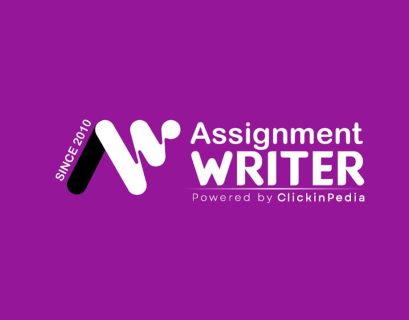In today’s educational landscape, it’s essential to recognize that every individual learns differently. Understanding these differences is crucial for both students and educators to maximize learning potential. Learning styles refer to the different ways in which people absorb, process, and retain information. By identifying your learning style, you can tailor your study habits, making the learning process more efficient and enjoyable.
In this complete guide, we’ll explore the various types of learning styles, how to identify your own, and how understanding your learning preferences can help improve your academic performance. Plus, we’ll discuss how services like “Do my assignment” can assist in managing assignments, so you can focus more on understanding your learning style and improving your educational experience.
What Are Learning Styles?
Learning styles are the ways in which individuals prefer to engage with and process information. The theory behind learning styles suggests that different people have preferred ways of learning, whether it’s through hearing, seeing, or doing. By identifying your learning style, you can use tailored strategies to study more effectively, leading to better retention and performance.
The 4 Main Types of Learning Styles
- Visual Learners
Visual learners absorb information best when they see it. They tend to remember details when they are presented visually, such as in diagrams, charts, and written instructions. This learning style emphasizes the importance of images, colors, and spatial arrangements to help organize and recall information.Study Tips for Visual Learners:
- Use color-coded notes or mind maps.
- Watch educational videos or use graphics to reinforce concepts.
- Create flashcards or charts to summarize key information.
- Auditory Learners
Auditory learners learn best by hearing information. They prefer listening to lectures, discussions, and audio materials like podcasts or audiobooks. This type of learner might also benefit from reading aloud or using mnemonic devices with sounds.Study Tips for Auditory Learners:
- Listen to recordings of lectures or discussions.
- Read your notes aloud to reinforce concepts.
- Use rhymes or songs to remember important facts.
- Participate in group discussions to reinforce learning.
- Kinesthetic Learners
Kinesthetic learners learn best through hands-on experience and physical activities. They tend to struggle with traditional classroom settings that rely heavily on lectures or reading assignments. Kinesthetic learners benefit from activities that involve movement, role-playing, or building models to represent concepts.Study Tips for Kinesthetic Learners:
- Take frequent breaks to move around while studying.
- Use physical objects to demonstrate concepts.
- Engage in role-playing or interactive exercises.
- Try to apply theoretical knowledge in practical, real-world situations.
- Reading/Writing Learners
Reading/writing learners prefer to learn through reading and writing. They excel when working with written materials, such as books, articles, and written notes. This type of learner benefits from writing essays, taking notes, and rephrasing information in their own words.Study Tips for Reading/Writing Learners:
- Read textbooks, articles, and academic papers.
- Write summaries of what you’ve learned.
- Keep detailed notes and organize them in a written format.
- Engage in journaling or research-based writing to reinforce learning.
Identifying Your Learning Style
Understanding your own learning style can be a game-changer when it comes to maximizing your academic performance. Here are a few signs that might indicate your preferred learning style:
- If you are drawn to pictures, videos, and diagrams, you might be a visual learner.
- If you find that listening to lectures and discussions helps you grasp concepts better, you are likely an auditory learner.
- If you prefer hands-on activities, experiments, or physical engagement, you could be a kinesthetic learner.
- If reading and writing come naturally to you, you are most likely a reading/writing learner.
Once you identify your learning style, tailor your study habits accordingly. Understanding your learning preferences helps you focus on methods that work best for you, rather than relying on general, one-size-fits-all techniques.
How Understanding Your Learning Style Can Help Your Academic Performance
Knowing your learning style can significantly improve how you approach studying, making it more efficient and effective. Here are some ways understanding your learning style can benefit you:
- Increased Retention
By studying in a way that suits your learning style, you are likely to retain more information. For example, visual learners might have better recall when they study with diagrams or charts, while auditory learners might retain information better by listening to podcasts or lectures. - Improved Study Techniques
When you recognize your learning style, you can implement strategies tailored to your preferences. Visual learners can use color-coded notes, while kinesthetic learners can engage in practical, hands-on activities. Using the right techniques boosts your productivity and engagement. - Better Time Management
Knowing your learning style can help you plan more effectively. For instance, auditory learners might benefit from listening to materials on the go, allowing them to maximize their time. Kinesthetic learners, on the other hand, might need to incorporate physical movement into their study routine to stay engaged and focused. - Boosted Confidence
When you study in a way that aligns with your natural learning preferences, you’re more likely to feel confident about the material. This confidence can lead to improved grades, a stronger sense of academic achievement, and a greater passion for learning.
Overcoming Challenges with Learning Styles
While understanding your learning style is beneficial, it’s important to recognize that sometimes you will need to adapt. Not every lesson or subject will perfectly align with your preferred style. For example, if you are a visual learner but your professor only uses lectures, you may need to supplement your learning with extra resources like videos or visual aids.
In such cases, online tools and services can be a big help. If you’re struggling to manage assignments due to your learning style preferences, consider looking for services that offer academic support. For instance, searching for “Do my assignment for me Australia” can give you the assistance needed to complete tasks while focusing on studying in a way that best suits your style.
The Role of Academic Support Services
Sometimes, even with the best learning strategies, students face challenges with their assignments. Whether it’s a tight deadline, a challenging subject, or a lack of understanding, services like “assignment help” can provide essential help. These services offer expert writers who can assist you with writing, research, and problem-solving, ensuring that you meet deadlines while maintaining high-quality academic work.
By using such services, you can alleviate stress, allowing you to focus on refining your study techniques and learning more effectively. These services act as a safety net for students, offering support when needed, especially during busy academic periods.
Conclusion
Understanding your learning style is a powerful tool that can improve your study habits, increase retention, and ultimately enhance your academic performance. Whether you are a visual, auditory, kinesthetic, or reading/writing learner, tailoring your study strategies to match your preferences can lead to a more efficient and enjoyable learning experience.
However, learning styles aren’t a cure-all. Sometimes, despite our best efforts, assignments or tasks can become overwhelming. In these cases, turning to professional academic support can make all the difference. Services like “Do my assignment for me Australia” or “Do my assignment” can provide the extra help you need, allowing you to focus on mastering your learning style and reaching your academic goals.













